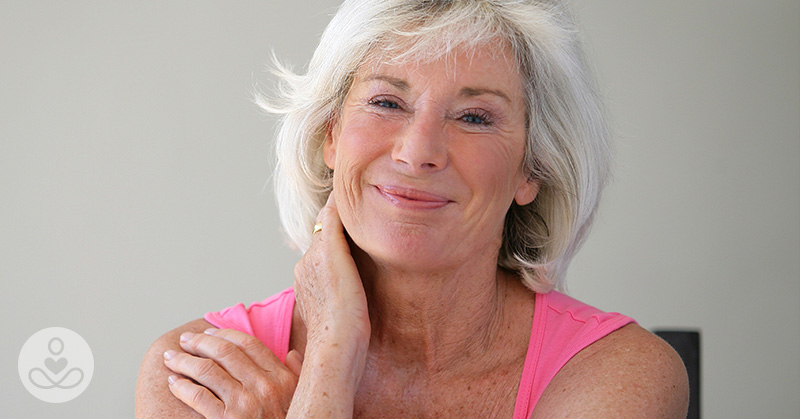Two women embarked on a mission to age with good health, and happiness, and to be disease-free. As they researched medical studies and adjusted their lifestyles, they documented their findings on their blog and eventually their book, the Age Well Project.
Susan Saunders was 36 when her mother developed severe dementia. She became her mother’s caregiver—despite having had a full-time job as a TV producer, a toddler, and a newborn baby—just as her mother did for her grandmother. Saunders resolved to spare her daughters of that burden. “I became determined to do everything I could to increase my chances of aging well.”
Annabel Streets had a similar experience

Her grandfather died from cancer when she was a teenager. Her grandmother had dementia and rheumatoid arthritis so crippling she couldn’t move her legs and hands for almost 30 years. At age 25, Streets was diagnosed with a chronic autoimmune disease, and she knew her lifestyle must change. However, she had four children and little time for her health.
The two came together to create the Age Well Project which has over 100 health tips for the aging population, even those with kids and full-time careers. In fact, Saunders and Streets, both in their 50s, stated their health has never been better. “We love being in our fifties and we have every intention of loving our sixties, seventies, and beyond!”
Read More: Common Blood Pressure Drug May Increase Lifespan and Slow Aging
25 Ways to Age in Good Health and Happiness
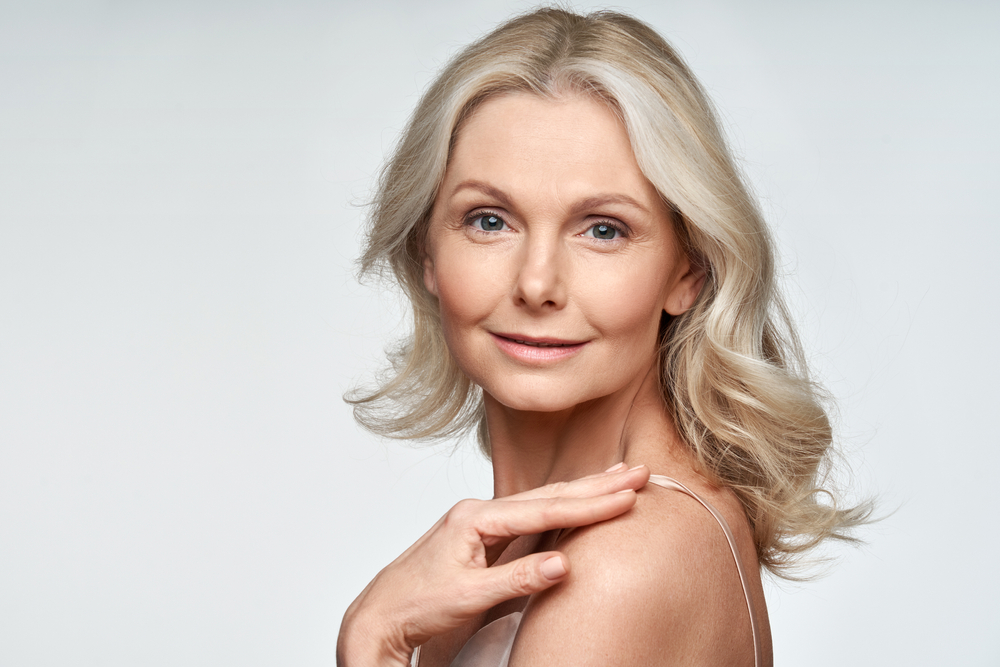
Aging is a natural and beautiful part of life, offering us the wisdom of experience and the joy of seeing our loved ones grow. However, maintaining good health and happiness as we age requires intentional effort and a proactive approach. By focusing on physical, mental, and emotional well-being, we can enjoy our later years with vitality and joy.
Search Your Family Tree

To age well, people must become experts in their own health. Saunders and Streets began their journey by creating ancestral health trees. They listed their deceased family members, their illnesses if any, and the ages and causes of death. The next step was to take DNA tests, record their blood pressure, blood sugar, cholesterol, and vitamin D levels, note their BMI, and measure their waist-to-hip ratio. The more one knows about their body and health, the more personal their health choices could be. This is how anyone can devise a personal aging plan.
Drink Coffee

Although the healthiness of coffee is under debate, many studies prove its benefits, such as reducing the risk of Alzheimer’s and Parkinson’s disease. [2] This beverage may also help fend off heart disease, [3] type 2 diabetes, [4] and several kinds of cancer. [5] This is because coffee is rich in antioxidants, polyphenols, and phenylindane. Remember, to avoid processed sugar and syrups, and too much cream. The antioxidant value in a cup of joe lowers when milk is added.
Brisk Walking
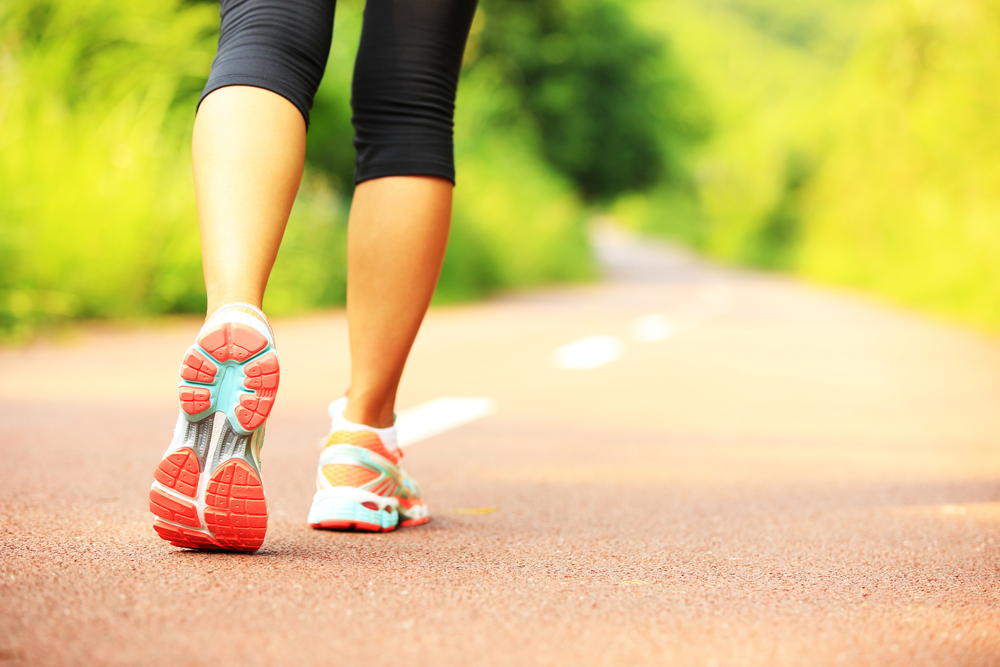
Walking briskly has been shown to improve one’s memory, health, and life span. Slow strolling does not provide these benefits (although being outside itself is healing, see #4.) Walkers should increase their pace until they feel slightly out of breath and/or sweaty. Ideally, a walk should be 30 minutes a day and outdoors for the positive effects of vitamin D and natural light. A study found that walking in the mornings in particular, as opposed to first sitting for six hours at a desk job, boosts memory and brain function in older adults. [6]
Exercise in Nature
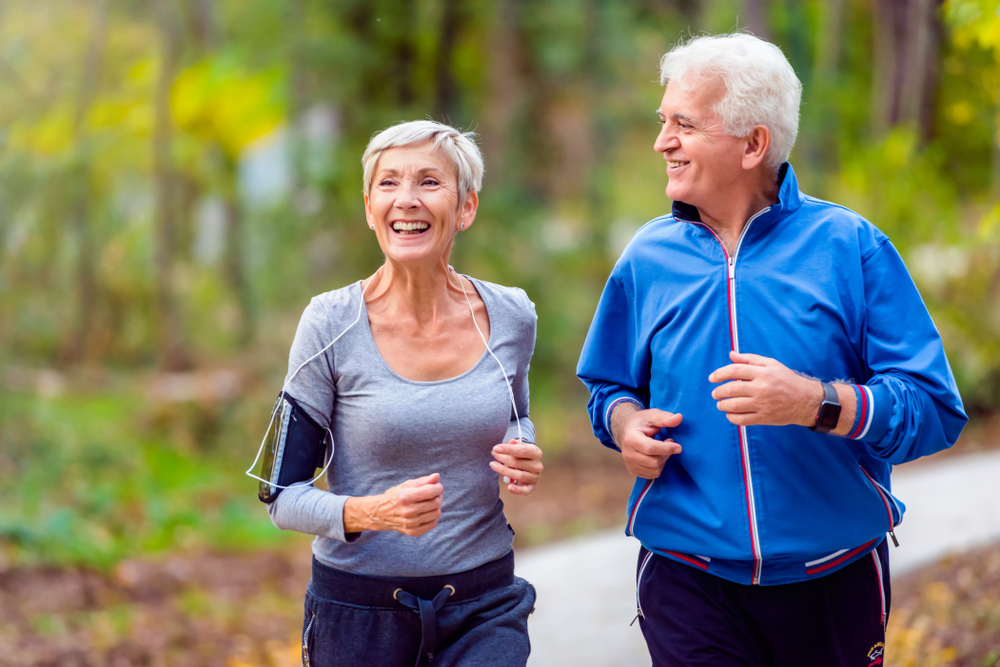
Nature is full of healing properties. Something known as forest bathing can help reduce stress, anxiety, and depression, lower blood pressure, and even boost immunity. How? While walking in a forest we inhale phytoncides (wood essential oils), which are antimicrobial volatile oils that can have a therapeutic effect. Some examples of these are α-pinene and limonene. Think of a walk in the woods as nature’s aromatherapy. A short walk or run in the afternoon can improve the quality of sleep that night. [7]
Daily Fasting

Intermittent fasting has become well-known in the health community because of Michael Mosley’s 5:2 diet. It is also proven to improve longevity and fend off Alzheimer’s, type 2 diabetes, and weight gain. Fasting can sound daunting to those who have never tried it, but there are several ways it can be tailored to a person’s individual lifestyle. [8]
Build Muscles

After age 40, the body naturally loses muscle. This increases the risk of heart attacks, strokes, and osteoporosis. Resistance training is as important for healthy aging as a good diet and sleep. A 15-year study found that adults who worked out twice a week lived longer—with less pain—than those who did not. Therefore, it’s crucial for a person to incorporate weight training into their weekly routine. [9]
Read Books

Readers, rejoice! A study of 3,600 participants over the age of 50 discovered that reading improved longevity by about two years. Those who read books—not newspapers and magazines—for three and a half hours a week lived the longest, but the leading researcher stated that 30 minutes a day is still beneficial, and a very reasonable goal. [10]
Retire Later

This may sound counterintuitive because most people work hard to achieve an early retirement. However, poor health can be common in post-retirement adults. A career often gives a person social interaction, physical movement, and a sense of purpose. Leaving too early can leave the retiree feeling lonely and depressed, which are big factors for poor well-being and a shortened lifespan. Overworking and long hours are not a good idea either. As one age, it’s best to work at a slower pace and for fewer hours, depending on the individual and their job. [11]
Take Naps
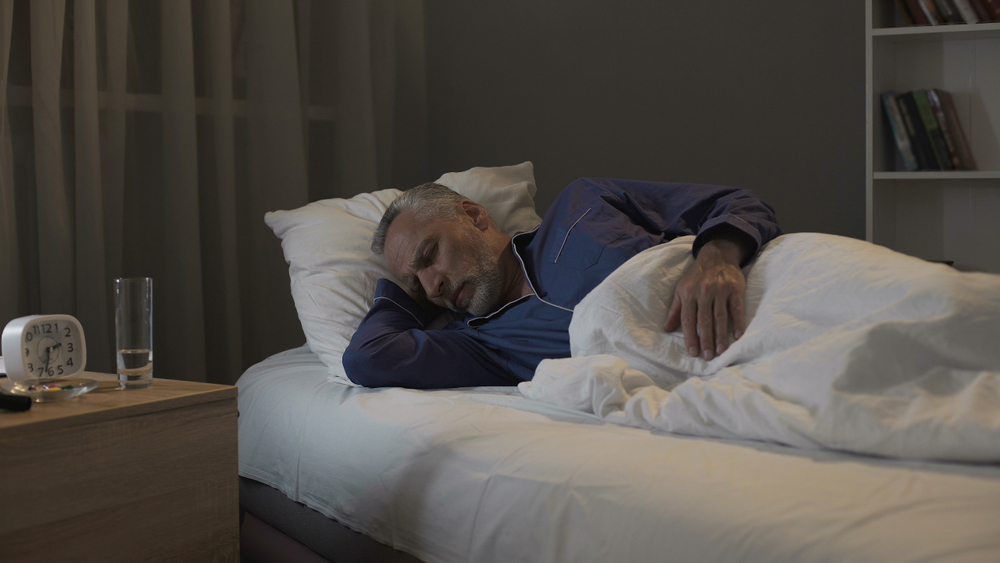
A daytime nap should not stop in kindergarten. For adults, naps improve focus, memory, and cognitive function. Counter to what one might expect, they can also improve sleep at night (as long as the nap is taken early enough in the day.) The key is to keep it short. A 20–30-minute nap can improve alertness and overall performance, but research shows that a 90-minute or longer nap can be detrimental.
Keep Learning

No matter how old or wise one gets, there’s always something new to learn. The brain can build new neurons and synapses at any age, and cognitive function is strengthened when people challenge themselves to learn new skills. This could include learning new games, instruments, crafts, languages, and even cooking. A person can choose an activity they enjoy but still find it complex. For a greater reward, choose an activity involving social interaction and physical movement, such as dancing. [13]
Read More: Cocklebur plant: The ‘invasive weed’ with Anti-aging, anti-inflammatory potential
Clean the Medicine Cabinet

More specifically, clear out any drugs that are anticholinergics, which often include antidepressants, antihistamines, medication for seasonal allergies, bladder disease, Parkinson’s disease, and travel sickness. While it is well known these drugs can cause temporary cognitive impairment, studies have found anticholinergics can increase the risk of developing Alzheimer’s and dementia. It is not advisable to stop medication without medical supervision, so consult with your doctor. [14]
Take Vitamin D and Zinc
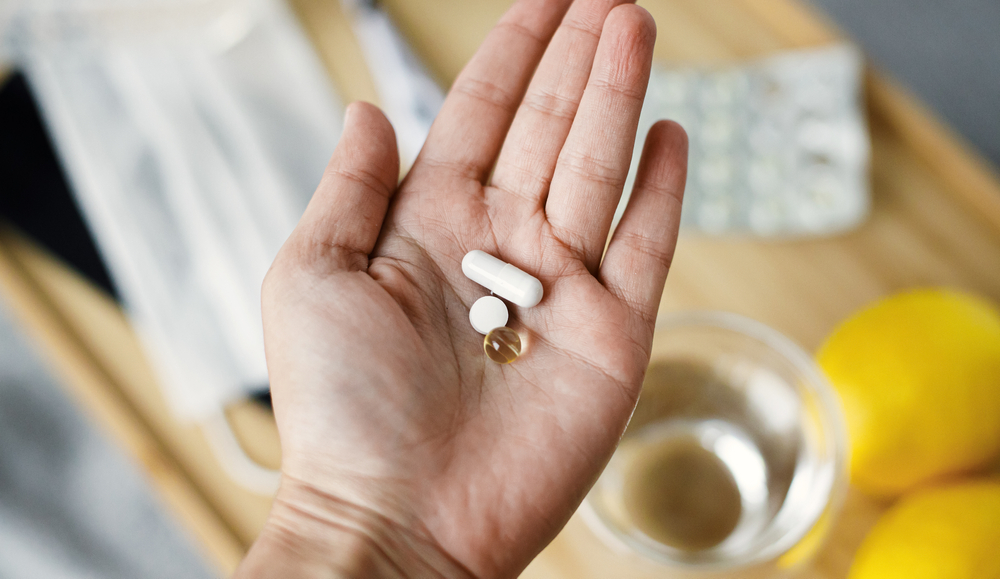
Countless studies have found that supplements cannot compare to the natural benefits of good food. However, research has found that vitamin D and zinc supplements are beneficial, especially for the aging population. Vitamin D helps maintain the nervous system and heart health, in addition to preventing osteoporosis, hypertension, depression, and type 2 diabetes. Zinc fights the cold and flu, and is best taken within 24 hours of its onset. [15] [16]
Avoid Pollution

Many people live in heavily populated cities, but there are ways to lessen the effects of pollution, including, avoiding congested roads, eating an anti-inflammatory diet, investing in a good air purifier, and decorating the house with greenery. Research links pollution to lung cancer, heart disease, diabetes, asthma, hypertension, skin irritations, and dementia. Overall, it’s important to petition for cleaner air and reduce one’s own carbon footprint. [17]
Olive Oil

A study involving over 7,000 people ran for almost 5 years to test the effects of including olive oil in one’s diet. One group was assigned a Mediterranean diet supplemented with extra-virgin olive oil, the second a Mediterranean diet supplemented with nuts, and the third was given basic dietary advice. They found that the group consuming the most olive oil had a lower incidence of heart disease by 30%. It’s easy to consume olive oil regularly by mixing in salads or cooking vegetables with it. [18]
Strengthen Bone Density

Bone density can be built and improved. In fact, professional tennis players have more bone density in their serving arm than in their other one. High-impact exercises like jumping, running, lifting weights or even ballroom dancing build bone density. The general rule is ‘If you don’t use it, you lose it.’ [19]
Cultivate Relationships

Studies have found that loneliness can be as detrimental to one’s health as smoking 15 cigarettes a day. It increases a person’s risk of death by 29%, which makes sense based on the research that shows lonely people often struggle with dementia, heart disease, and depression. Therefore, it’s recommended for people to expand their social network and find good quality friends who exhibit positive energy.
Protect the Immune System

Many assume a person’s immunity weakens as they age, but the opposite is true. The immune system tends to overreact, which creates inflammation in the body and speeds up the aging process. The key is a healthy gut since 70% of the immune system is located there. Bringing dark leafy greens, cabbage, broccoli, garlic, leeks, onions, and mushrooms into one’s diet can enhance the immune system and lower inflammation.
Read More: 8 Habits to Help Slow Biological Aging
Fixing Bad Dietary Habits

Sometimes it’s not what people eat; it’s how they eat it. Eating dinner earlier in the evening allows a person to digest properly before bed, which improves sleep quality. It’s also important to eat slowly so the satiety hormones can comprehend when to stop. Once, the meal is over, it’s best to stop snacking up until bed. Constant grazing stops the digestive system from resting. Then it’s always producing insulin, which can lead to insulin resistance and diabetes. [22]
Turmeric
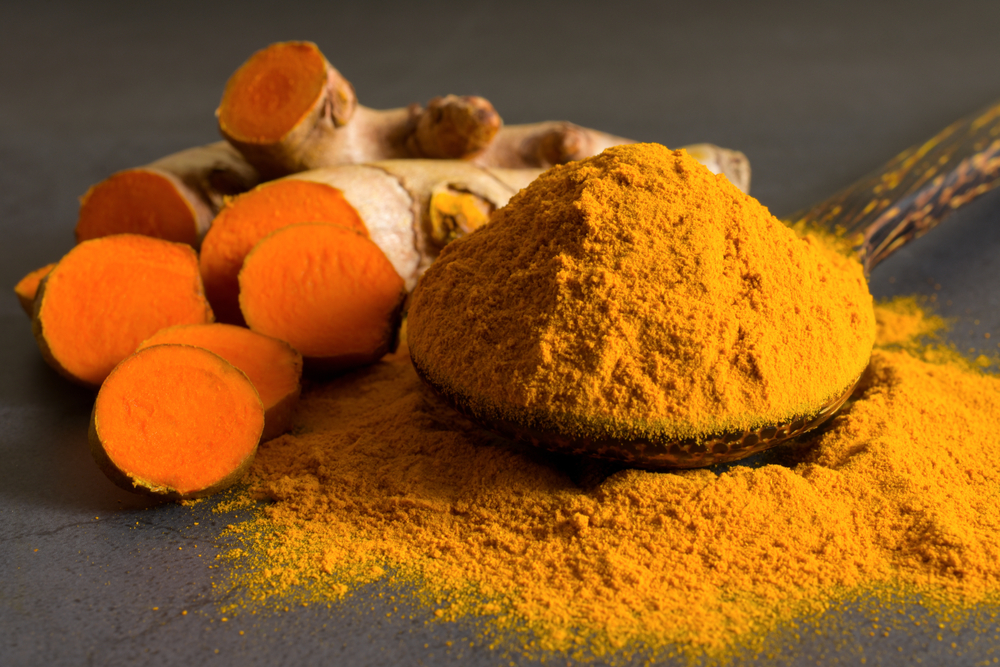
Turmeric is a miraculous spice with natural anti-inflammatory, antiseptic, and antibacterial properties. Therefore, bringing turmeric into one’s diet can counter the chronic inflammation that comes with age and improve brain function. It can help arthritis, cancer, diabetes, Alzheimer’s disease, stomach issues, and heart disease. Sprinkle turmeric into recipes or start the day with a turmeric tea of 1 tsp of turmeric, 1 tbsp of apple cider vinegar, ½ tsp black pepper, ½ tsp ginger pulp, and honey to taste.
Meditate

Meditation isn’t just for hippies. Research has proven its incredible impact on the human body. Just 15 minutes a day can reduce stress, encourage empathy, improve concentration, and lower blood pressure levels. Studies show it may be a good preventative treatment for Alzheimer’s. Even if there aren’t 15 minutes in a day to spare, take a few moments to focus on breathing or a calming environment [24]
Eat More Fiber

A study in Australia examined the connection between aging and carbohydrate, sugar, and fiber intake. They followed over 1,600 participants for 10 years and found the most successful subjects had the highest fiber intake, including whole grains, oats, and fruits. The researchers suggested this is because fiber slows digestion, which maintains sugar levels and reduces inflammation. It also supports heart health and lowers the risk of colorectal cancer. The recommended daily intake of fiber is 30 grams.
Turn Off the Blue Light in the Evenings

The light from phones, tablets, and computer screens tends to disrupt circadian rhythms. While blue light can help a person wake up in the morning, it suppresses melatonin production at night, resulting in insomnia and poor sleep quality. Avoid this by adding electronic filters that block blue light, avoid looking at screens three hours before bed, and keep devices out of the bedroom. [26]
Guard your eyes

Eyes are the windows to the soul and they are also at a high risk of degenerating with age. To protect them, avoid smoking, wear sunglasses on bright days, and take regular breaks from the screen. Besides staying active and eating well, consume more foods rich in macular pigments, like corn, kale, carrots, and orange peppers. Eyesight can change rapidly after age 40, so book regular eye tests. [27]
Dog Walk

Dogs truly are our best friends. A study including 3.4 million Swedes found that dogs provide social support for their owner and motivate them to exercise outdoors. Dogs also provide relief to loneliness, stress, and depression. Even stroking a pet can lower cortisol levels. Dog owners have a lower risk for cardiovascular disease and all-cause mortality. [28]
Be Optimistic

A person’s mood has been proven to affect their physical well-being. Those with negative attitudes tend to have worse health as they age. They are frailer, walk slower, and their cognitive abilities are less sharp than those with a positive attitude. Pessimism puts stress on the body, which impacts the heart, sleep quality, weight, and brain function. When it comes to aging, attitude is truly everything. [29]
Read More: Effects of THC on Damaging Alzheimer’s Proteins
Sources
- Effects of caffeine in Parkinson’s disease: from neuroprotection to the management of motor and non-motor symptoms. https://www.ncbi.nlm.nih.gov/pubmed/20182024
- Is coffee good for you or not? https://www.heart.org/en/news/2018/09/28/is-coffee-good-for-you-or-not
- Changes in coffee intake and subsequent risk of type 2 diabetes: three large cohorts of US men and women https://link.springer.com/article/10.1007%2Fs00125-014-3235-7
- Can Coffee Lower Cancer Risk? https://www.cancer.org/latest-news/can-coffee-lower-cancer-risk.html
- Distinct effects of acute exercise and breaks in sitting on working memory and executive function in older adults: a three-arm, randomised cross-over trial to evaluate the effects of exercise with and without breaks in sitting on cognition https://bjsm.bmj.com/content/early/2019/04/24/bjsports-2018-100168
- Effect of forest bathing trips on human immune function https://www.ncbi.nlm.nih.gov/pmc/articles/PMC2793341/
- Cell Metabolism https://www.cell.com/cell-metabolism/fulltext/S1550-4131%2817%2930612-5
- Is strength training associated with mortality benefits? A 15 year cohort study of US older adults https://www.sciencedirect.com/science/article/pii/S0091743516300160?via%3Dihub
- A chapter a day: Association of book reading with longevity https://www.sciencedirect.com/science/article/abs/pii/S0277953616303689
- Association of retirement age with mortality: a population-based longitudinal study among older adults in the USA https://jech.bmj.com/content/70/9/917.short
- Back to school: Learning a new skill can slow cognitive aging https://www.health.harvard.edu/blog/learning-new-skill-can-slow-cognitive-aging-201604279502
- Anticholinergic drugs and dementia in older adults https://www.bmj.com/content/361/bmj.k1722.full
- The Role of Vitamin D in the Aging Adult https://www.ncbi.nlm.nih.gov/pmc/articles/PMC4399494/
- The effectiveness of high dose zinc acetate lozenges on various common cold symptoms: a meta-analysis https://www.ncbi.nlm.nih.gov/pmc/articles/PMC4359576/
- Effects of air pollution on human health and practical measures for prevention in Iran https://www.ncbi.nlm.nih.gov/pmc/articles/PMC5122104/
- Primary Prevention of Cardiovascular Disease with a Mediterranean Diet https://www.nejm.org/doi/full/10.1056/nejmoa1200303
- Bone Mineral Density of Adolescent Female Tennis Players and Nontennis Players https://www.ncbi.nlm.nih.gov/pmc/articles/PMC3395175/
- The Facts on Loneliness https://www.campaigntoendloneliness.org/the-facts-on-loneliness/
- Aging Promotes Neutrophil-Induced Mortality by Augmenting IL-17 Production during Viral Infection https://www.cell.com/cell-host-microbe/fulltext/S1931-3128(09)00347-3
- Grazing vs Two Large Meals—Which is better for Insulin Sensitivity? https://www.endocrineweb.com/professional/type-2-diabetes/grazing-vs-two-large-meals-which-better-insulin-sensitivity
- A pilot study of yogic meditation for family dementia caregivers with depressive symptoms: effects on mental health, cognition, and telomerase activity. https://www.ncbi.nlm.nih.gov/pubmed/22407663
- Blue light has a dark side https://www.health.harvard.edu/staying-healthy/blue-light-has-a-dark-side
- Eye Health Tips https://nei.nih.gov/healthyeyes/eyehealthtips
- Dog ownership and the risk of cardiovascular disease and death – a nationwide cohort study https://www.nature.com/articles/s41598-017-16118-6
- Attitudes to Ageing and Change in Frailty Status: The English Longitudinal Study of Ageing https://www.karger.com/Article/FullText/477169
